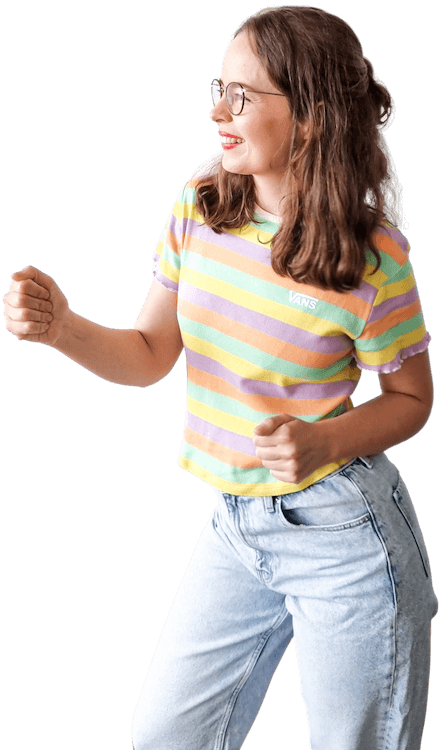
Discovering your menstruation as a spiritual practice
Yasmine understands her menstruation as a spiritual practice and shares in this interview how she is connecting more with her own body through cycle awareness.
PMDD, premenstrual dysphoric disorder, is a menstrual disorder in which hormonally induced mood swings can take on an extreme form. In this interview, Laura tells us about living with PMDD, what’s actually behind the term, and gives us insights into her everyday life. Laura Teare-Jones is thirty years old, lives with her husband and their two dogs in North Wales. She was diagnosed with premenstrual dysphoric disorder (PMDD) in 2019. Thank you dear Laura for speaking so openly about PMDD and for playing an important part in raising awareness. In her podcast “My Hormones, My Health” she talks about PMDD and shares personal experiences.
Pre-Menstrual Dysphoric Disorder is a menstrual condition that affects 1 in 20 cycling individuals (anyone who has periods). Medically speaking, PMDD is an extreme sensitivity to hormonal changes within the body. So it isn’t PMS, and it isn’t a hormonal imbalance. Pre-menstrual – meaning before period, dysphoric – easily summed up as the opposite of euphoric, and meaning state of difficulty, and disorder. When I Googled the actual definition of disorder, it came up with “a confused or messy state” which I actually think is perfect! So PMDD – before a period, a difficult, confused and messy state! Symptoms tend to begin at around ovulation and end at the start of a period (so lasting for around two weeks of every month).
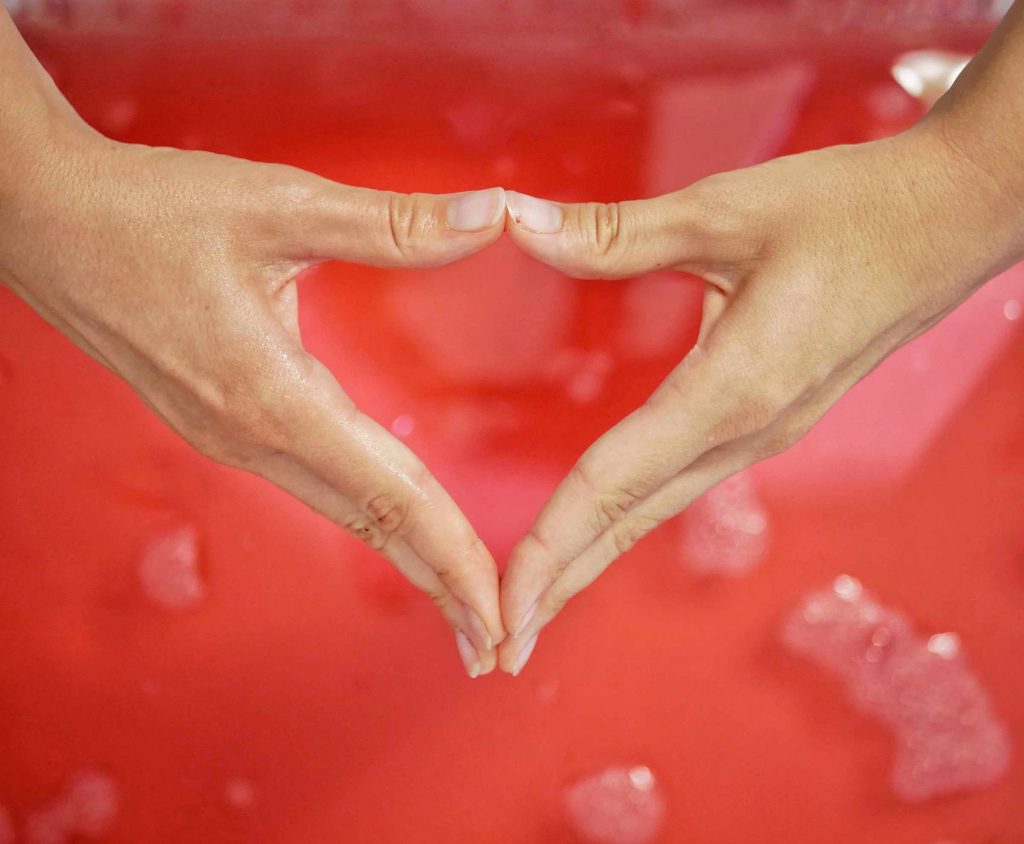
Up until a few years ago, I had never connected how I was feeling and my symptoms with my menstrual cycle. What I saw it as was, phases of depression. But just as I would start thinking that maybe it was time to speak to my Doctor, the depression would lift – as would happen with PMDD. But me not knowing about it at the time I would consider myself cured. Then when it would hit again, I would blame myself for not doing enough to protect my mental health. Over the years I have been back and forward to the doctor and treated for my mood and for migraines, but no connections were ever made – by them or by me – with my menstrual cycle.
When you find a good Doctor for PMDD, they’re like gold-dust! Unfortunately, though, PMDD is so unheard of in the medical world. Often when I built up the courage to see a Doctor, I do feel like I was not taken seriously. I remember being a teenager and struggling with disordered eating. Binge eating and changes in appetite are a symptom of PMDD so this is likely to all be linked. I told my GP about my unhealthy eating habits and told them I thought I needed help. This was a big deal – I was about 15, feeling really vulnerable, alone in the Doctor’s surgery. And when I asked for help for what was becoming an eating disorder, I was told I needed to eat healthier and given a list of healthy foods.
This really set a tone for me – that if I wanted to get better, I didn’t need help, I just needed to get on with it. When I was diagnosed with PMDD, it was again based on me “taking charge” of what was happening. I did the research and tracked my symptoms and presented my findings to my GP. They agreed I probably had PMDD and should go back on the contraceptive pill. It was such a relief to get a diagnosis and feel like I was taken seriously. However, at the same time, I wasn’t really taken seriously because I’d recently come off the pill because it wasn’t agreeing with me. I felt seen and heard, but I didn’t feel understood.
Living with PMDD really affects a person’s mood. For me they include anxiety, depression, tension, feelings of despair and hopelessness, and suicidal ideation. I also experience physical symptoms (which can be less prevalent and less talked about). And the worst for me is migraine. I also get fatigue and bloating, sickness and brain fog – which really affects my memory and speech.
I’ve tried different contraceptive pills over the years. While they weren’t specifically for PMDD, looking back, they all exacerbated my symptoms. When I was diagnosed, I was offered SSRIs (antidepressants), which I took every day. However, I found that while they did dial down my symptoms, they also dialled down the happiness I felt on my better days, which felt really unfair! When I’m not in PMDD, I’m such a happy and positive person. Living with PMDD takes that away from me. And while I can accept that as a medical condition, I don’t want my better days to be taken away from me too.
After doing some research I found that SSRIs can be more effective for PMDD when taken in luteal phase only rather than all cycle long – so from ovulation to day one of a period starting. So after speaking with my GP, I tried doing that. And I found that it really did make a difference – the SSRIs still took the edge off my harder days without zapping my energy on the better days, so this has been a big help for me.
Yes! I’m really big on self-compassion, but I tell anyone that as soon as you start putting pressure on yourself to be self-compassionate, it becomes the opposite! So, my biggest habit actually is patience – meeting myself where I am on any given day and just going with how I feel.
In terms of diet and exercise, I try to eat healthily but again don’t put pressure on myself here. When you live with a mind that wants to tear you to shreds every month, the last thing you need is to add any more pressure. So, I won’t beat myself up for eating less healthy food any more, as that tends to make me spiral even more. And I love walking – on my harder days, on my better days, whatever! Walking is exercise, it’s fresh air, and it’s a change of scenery when things are getting tough.
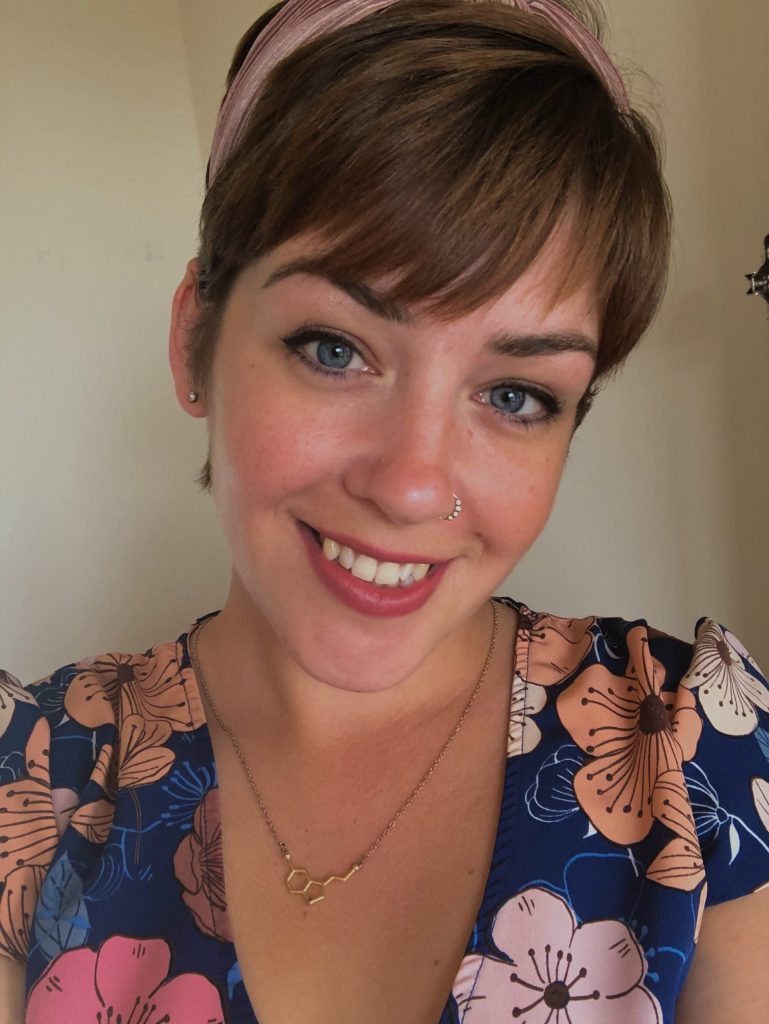
I never know how I’m going to feel. PMDD symptoms tend to start from ovulation and end at day one of a period. But they can continue into a few days of the period, and for me they aren’t always that bad when I’m at ovulation. So, it means I second guess myself a lot – am I genuinely upset about something that needs addressing, or is it PMDD? There are days when I can’t get out of bed, I can’t function. If I do get out of bed, I might be stuck on the sofa – I call it my hibernation time. And it is okay to rest.
But how does this fit in with being a thirty-year-old woman trying to do what other people my age are doing – like have a full-time job? I learnt a few years ago that the Monday to Friday 9 to 5 just wasn’t sustainable for me. I give 100% at work and like to feel proud of what I do, but to work a full day like that just isn’t doable, and I’ve had to really think about what a successful career looks like for me.
It’s changed my life for the better. I’ve learnt to be patient with myself now that I know I have a chronic condition. I’ve met some amazing people that I know I can speak to so openly and honestly – the online PMDD community is amazing! But there’s also a cloud hanging over my head, where my future is so uncertain. Every cycle I go through is a cycle closer to me considering surgery, which actually I don’t want to have. I’m going to have to really think about that.
At the start of the pandemic, I decided to create an Instagram account to raise PMDD awareness, educate, and spread a message of hope – that a life with health or hormone issues could still be compatible with a life of joy. I originally kept it anonymous because I wasn’t ready to share my story with the world. But then I realised that actually, if more awareness and education is needed, then that probably starts with normalising the conversations around periods, menstrual health, hormones and mental health, without hiding behind my Instagram account. And self-shame only perpetuates stigma. At that point I knew I was ready to share my story. I was strong enough to allow myself to be openly vulnerable, if it helped other people. This is when I started the My Hormones My Health podcast.
My intention was for this to be a platform for me to document my experiences and speaking to guests about theirs. It’s part of my crusade to spread awareness, but it very quickly snowballed into something else. I was inundated with people asking to talk on the podcast. I realised that people actually really want to talk about this! They have a voice and they really want to use it! The podcast works because my guests are able to talk about things they might never have talked about so openly before. My listeners also get to learn that they aren’t alone. I’ve been a wellness coach for six years, and I’ve recently started specialising in PMDD. Because I believe, that if we’re going to tackle shame and stigma, it often needs to start from the inside. We need to deal with our own shame and learn to talk.
Listen and have patience! There is no cure for PMDD, it WILL come back next month. I know that can be hard to understand. And what you define as support, and what the person living with PMDD defines as support, might actually be two different things. So take the time to communicate with them – that will mean more than you know.
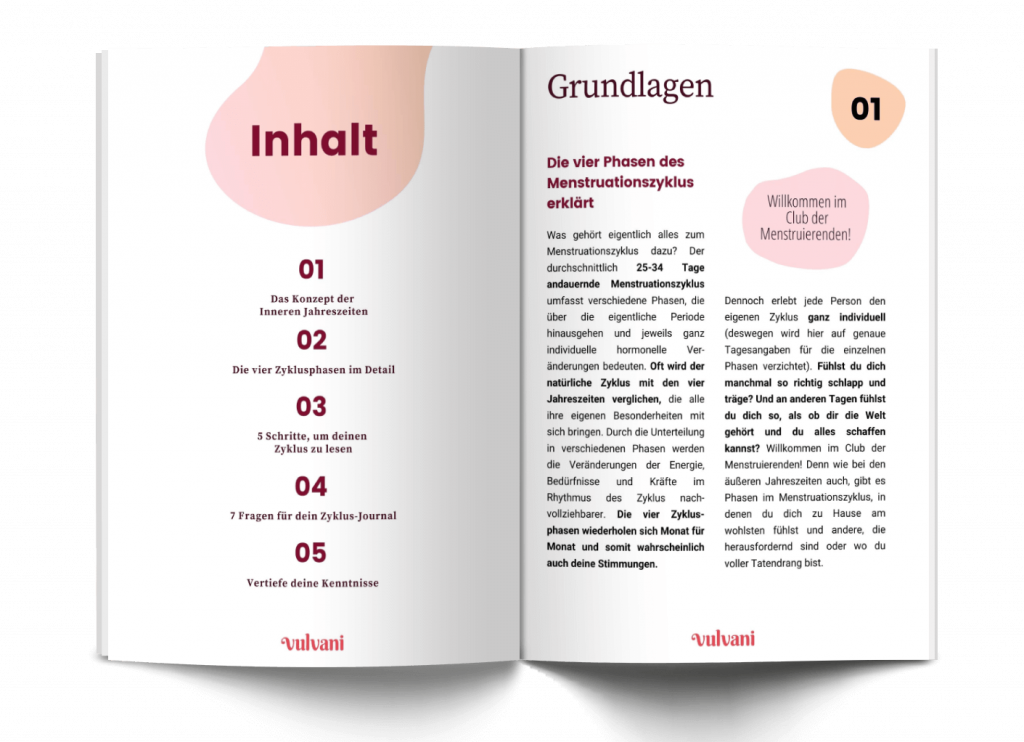


Yasmine understands her menstruation as a spiritual practice and shares in this interview how she is connecting more with her own body through cycle awareness.
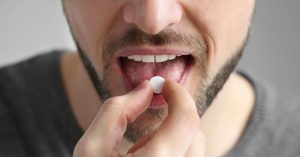
What options are there for male birth control? Ailsa delivers an overview of what is available now, and what may come in the future.
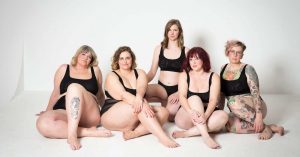
Sustainable underwear? The founders of TUKEA talk about fair labour conditions, body diversity and body literacy.
…and empower countless women to make empowered choices about their bodies!
